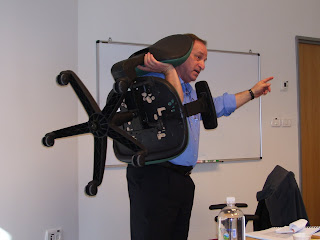What Does it Mean “To Learn”?
For approximately the last two hundred years education in the United States has maintained its constant machine-like dependability as it redesigned itself for the Industrial Revolution. But if we haven’t noticed lately, we no longer live in that era. In fact, similar to how the Agricultural Revolution brought about the Industrial Age it was the Digital Revolution of the late 20th Century which brought us into the Information Age.
Additionally, it wasn’t too long ago when “to learn” something connoted someone being told the differences between one item and another. “To learn” meant that a student was explained a certain idea, expected to know the facts, and eventually, to demonstrate the learned information/behavior the student was likely to simply regurgitate back the information.
No longer is this the case. Our children have access to information at speeds we could have never dreamed of when we were children. A child growing up in today’s world does not relate to the notion that knowledge is stagnant and unchangeable. What our children have seen, in only the last decade of their brief lives, has been change and technological advancement that would have taken centuries to occur only a few generations ago. Today we are teaching children to be prepared for jobs that have not yet been dreamed. It is exactly this change in access to information that has redefined the meaning of learning; “to not simply possess ‘knowledge’, but rather, to pursue ‘wisdom’”.
Wisdom has always been a differentiating factor in how our Jewish tradition approached education. Jewish wisdom has been based on one’s ability to self-reflect, think critically, and understand the world through an “external” lens instead of our often selfish tendencies to look at the world through our egos and personal motivation. The Book of Proverbs opens with the declarative statement “The wise man will hear, and increase in learning…but the foolish despise wisdom and discipline.” (1:5-7) It is this principal goal and objective of the Jewish day school that raises us above our competition.
At the Jess Schwartz Jewish Community Day School, as well as in most other Jewish day schools across North America, our children are taught to be counter-cultural. This “conflict” with the everyday value system we live in is an asset and a wonderfully positive attribute for our children’s future success. Research has clearly demonstrated that children who attend Jewish day schools are “significantly” less likely to engage in “risky behaviors” and are notably more likely to participate in positive civic and community service activities.
Day schools like Jess Schwartz take pride in identifying and nurturing our students’ strengths and guiding them to achieve their ultimate potential. Learning in Jewish day schools like ours encourages the students and their families to appreciate the total package of a Jewish day school education; the intellectual, spiritual, social, emotional, and physical components of a whole-child education. At Jess Schwartz we will never simply look to the checks and balances of the machine-shop world to understand how a student is doing. Assessing a child in a Jewish day school means understanding what capacity the child has, how the child applies the learning to real-life situations, and what will this child do with this newly learned knowledge.
We live in a state which has been ranked at the bottom (in some cases in last place) in its commitment to education, its ability to educate our children, and its demonstrated success in graduating students from high school on to college (50th out of 50 states!). And this is a state in a country which ranks almost at the bottom for math and science by PISA (Programme for International Student Assessment) of the Organization of Economic and Comparative Development (between 24th and 26th place out of 30 countries).
As was once shared with me, “In tough times, there are many things you need to cut back on. A quality Jewish education shouldn’t be one of them.” I encourage every parent of a school-aged child to visit a Jewish day school ASAP. As the parent of two day school students I happen to be partial to the Jess Schwartz Jewish Community Day School; however, all the Jewish day schools in the Valley work together to build a collective Jewish community for the generations yet to come, and so during this registration season pick up the phone, make the call, and come visit one of us. You assuredly won’t be disappointed!
# # #


